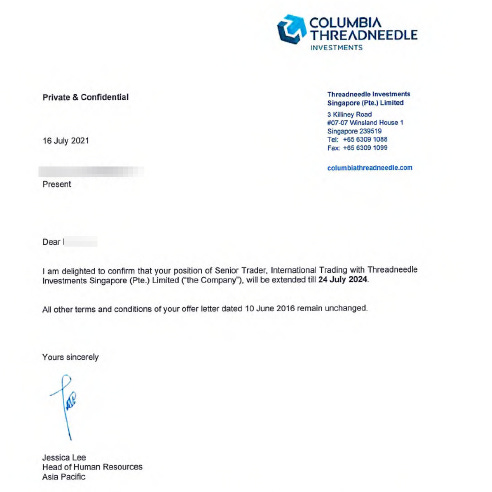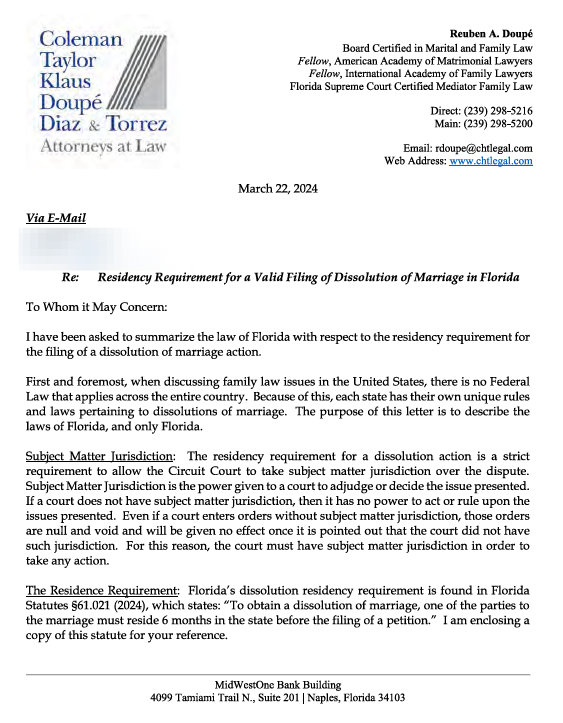By Rick LaRivière and Richard Luthmann
M.N., a high-flying finance executive now based in Hong Kong, faces explosive accusations of financial evasion and drug abuse. His estranged wife alleges he has failed to pay child support for their nine-year-old son and seven-year-old daughter for over a year. M.N. continues to live lavishly while his children are allegedly shortchanged.
M.N., whose elite background includes attending the prestigious Greenwich Day School and Phillips Exeter Academy, is also a member of the exclusive New York Athletic Club (NYAC). These credentials highlight his privileged upbringing and access to significant social and financial networks.
Despite this pedigree and substantial earnings as a finance executive, M.N. stands accused of evading child support obligations while maintaining a luxurious lifestyle that starkly contrasts with his claims of financial hardship. His membership in such circles underscores the irony of his alleged refusal to provide for his children, raising questions about accountability among society’s upper echelons.

This ongoing divorce battle has drawn attention to attorney Reuben A. Doupé, whose tactics critics describe as the “Deadbeat Strategy.” Doupé, a partner at Coleman, Hazzard, Taylor, Klaus, Doupé, Diaz & Torrez, P.A. in Naples, Florida, represents M.N. in a case spanning the U.S., Singapore, and Hong Kong.
Drug Use and Financial Evasion
Collier County, Florida court filings portray a chilling picture of M.N.’s lifestyle. The estranged wife alleges M.N. frequently used cocaine during their marriage and depleted marital assets on drugs and partying.
In one instance, she found white powder residue in their home. When confronted, M.N. claimed it was toothpaste from the children.
Right. Toothpaste. And Tony Montana was talking to the Tooth Fairy when he said “Say Hello to My Little Friend.”
The wife’s filing includes photographic evidence and testimony from M.N.’s mother, who expressed concerns about his behavior.
“He needs to be careful. If he loses his job, he can’t support the kids,” his mother allegedly warned in a message attached to the court documents.
M.N., a former executive at Columbia Threadneedle Investments in Singapore, a subsidiary of Ameriprise Financial, holds financial licenses in the U.S.
The wife’s allegations about M.N.’s cocaine use have added another layer of complexity. She claims his drug habits jeopardize his ability to parent.
“These behaviors demonstrate a lack of judgment and responsibility,” her filing states. “It is not in the best interest of the children to be exposed to this.”
The wife further alleges he misled both U.S. and Singapore courts about his assets. She claims he maintained undeclared offshore accounts to shield wealth from child support obligations.
The “Deadbeat Strategy” in Action
Critics say Attorney Doupé’s approach enables wealthy clients like M.N. to sidestep financial responsibilities. According to filings in Singapore and Naples, Florida, Doupé’s client has submitted contrary numbers in two different courts. M.N.’s aggrieved wife alleges he is being dishonest about assets, while Doupé is filing motions to delay payments and claim false financial hardships.
The wife says the court filings show Doupé represents M.N. in the Naples case and was an expert witness in Singapore.
She believes M.N.’s lawyers know he dishonestly structures his finances to create an illusion of poverty. Meanwhile, M.N. owns multiple international luxury properties, travels internationally to Thailand, and enjoys an extravagant lifestyle.
The aggrieved wife says that M.N. has not regularly paid child support and has been a “DEADBEAT” for well over a year since she and the children were forced to flee Singapore in October 2023 for fear of M.N.’s cocaine use.
Singapore enforces stringent penalties for cocaine-related offenses under the Misuse of Drugs Act (MDA). Possession of cocaine can result in up to 10 years' imprisonment, a fine of up to SGD 20,000, or both. However, as of June 1, 2023, possessing larger quantities of certain drugs, including cocaine, carries increased penalties of up to 30 years' imprisonment and 15 strokes of the cane.
Singapore's legal framework adopts presumptions to facilitate drug enforcement. For instance, if drugs are found in premises you control, you're presumed to possess them unless proven otherwise. Similarly, the presence of controlled drugs in your urine presumes consumption.
This outlet contacted Attorney Doupé’s office but received no response. Here is the email:
------- Forwarded Message -------
From: Rick LaRivière <RickLaRiviere@proton.me>
Date: On Friday, November 15th, 2024 at 2:38 PM
Subject: [M.N.]
To: rdoupe@chtlegal.com <rdoupe@chtlegal.com>, fserraino@chtlegal.com <fserraino@chtlegal.com>
CC: RALafontaine@protonmail.com <ralafontaine@protonmail.com>, mthomasnast@protonmail.com <mthomasnast@protonmail.com>, frankiepressman@protonmail.com <frankiepressman@protonmail.com>Good Afternoon,
We are independent journalists who covers the family courts, corruption, and fraud.
We have questions about your client, the above-referenced [M.N.], a litigant in a Singapore and now Florida divorce where you and your firm have submitted documentation:
We have acquired evidence from a protected source that shows the financial disclosures made by [M.N.] in Singapore and Florida are contradictory to the extent to raise issues of apparent fraud. We understand [M.N.] holds several U.S. financial licenses. Can he explain these discrepancies? Particularly, can [M.N.] explain why he has discrepancies in land holdings in Japan, trust beneficiary information, and omitted non-U.S. accounts and insurance policy cash value amounts?
We have further acquired evidence of [M.N.]'s narcotics use. We understand that he recently left a job in Singapore. Is his separation related to the drug use?
[M.N.] has disclosed that he is now working in [Hong Kong], taking a substantial pay cut in base pay. Is this new position related to his drug use and reputational problems within the financial industry?
A source has told us that [M.N.] hasn't paid child support for his children in almost a year. However, we have records and information that show he has travelled extensively on vacations and depleted marital assets through the use of narcotics. Does [M.N.] deny these claims?
We understand that [M.N.] is a member of the New York Athletic Club? Is this true?
Is [M.N.] withholding child support on advice of counsel?
Does [M.N.] believe it proper that individuals who use narcotics and are deadbeats when it comes to paying for their children should hold U.S. financial licenses?
We would like to afford you and/or your client the chance to comment prior to publishing.
Thanks,
Rick LaRivière
Independent Journalist
“He’s living like a king while his kids are being shortchanged,” said Richard Luthmann, co-host of The Unknown Podcast.
Luthmann, Volpe’s co-host, added: “They must come from all over the world to hire Doupé.
Luthmann believes he’s built his reputation by helping wealthy men dodge their obligations. “It’s not just unethical—it’s destructive.”
Doupé’s role in the case has drawn widespread criticism. Known for representing affluent clients in contentious divorces, he has faced allegations of prioritizing his clients’ wealth over children’s welfare.
“Doupé’s strategy doesn’t just hurt families—it undermines the entire concept of justice,” Volpe said on the podcast. “Courts are meant to protect children, not enable wealthy parents to shirk their responsibilities.”
Doupé has not publicly commented on the allegations. However, he maintains a strong professional reputation within the legal community, with no disciplinary actions on record. Supporters praise his expertise and strategic thinking.
Luxury Living Amid Claims of Hardship
Despite claiming financial hardship, M.N. continues to live a life of luxury. Records show he owns high-end properties in foreign countries and has access to significant financial resources related to trusts and offshore accounts.
The wife’s filings paint a stark contrast between his lifestyle and his children’s needs. While M.N. spends on travel and other indulgences, the wife struggles to maintain their children’s private school education and extracurricular activities.
“The children deserve the life they are accustomed to and the life their deadbeat father can more than afford to give them,” the wife wrote. “M.N.’s refusal to pay child support places them in unnecessary financial distress.”
M.N. has not stepped foot in Florida. His aggrieved wife believes he’s afraid the Sheriff will throw him in jail for being a deadbeat.
“They don’t play around down here, and [M.N.] knows it.”
Court Filings Reveal a Complex Legal Battle
The legal dispute began in Singapore, where the couple resided before the wife relocated to Florida with the children. M.N. filed for divorce in Singapore, while the wife petitioned the Florida courts for jurisdiction, citing concerns over M.N.’s financial misrepresentation.
Court documents allege M.N. used his international connections to move assets beyond the reach of the courts. The wife accused him of failing to disclose accounts and investments, claiming he used them to conceal wealth.
“Respondent has unreported foreign accounts and may use the same as devices to remove assets outside the court’s purview,” one filing states.
M.N.’s attempts to stall proceedings have further complicated the case. His lawyers, led by Doupé, have filed multiple motions that delay resolution, forcing the wife to deplete her limited financial resources in legal fees.
Systemic Issues in Family Law
M.N.’s case highlights broader concerns about how family courts handle high-conflict divorces involving addiction, financial manipulation, and international jurisdiction.

Critics argue that attorneys like Doupé exploit systemic weaknesses to benefit wealthy clients at the expense of children and custodial parents. Advocates are calling for reforms to close legal loopholes and increase accountability.
Proposed measures include:
Stronger enforcement of child support orders to prevent delays.
Audits of financial disclosures to uncover hidden assets.
Penalties for abusive legal tactics, including false claims of financial hardship.
“Family courts are supposed to protect children, but instead, they enable gamesmanship,” Luthmann said. “It’s time for reform.”
Conclusion
As the case against M.N. unfolds, his estranged wife continues her fight for financial justice for their children. The allegations of cocaine use, financial evasion, and Doupé’s legal strategies have put a spotlight on a system critics say too often favors the powerful.
“This isn’t just about one case,” Luthmann said. “It’s about a broken system that allows the wealthy to game the courts while families suffer.”
The case serves as a sobering reminder of the urgent need for accountability and reform in family law. Until then, the fight for justice continues, with two young children caught in the middle.































Share this post